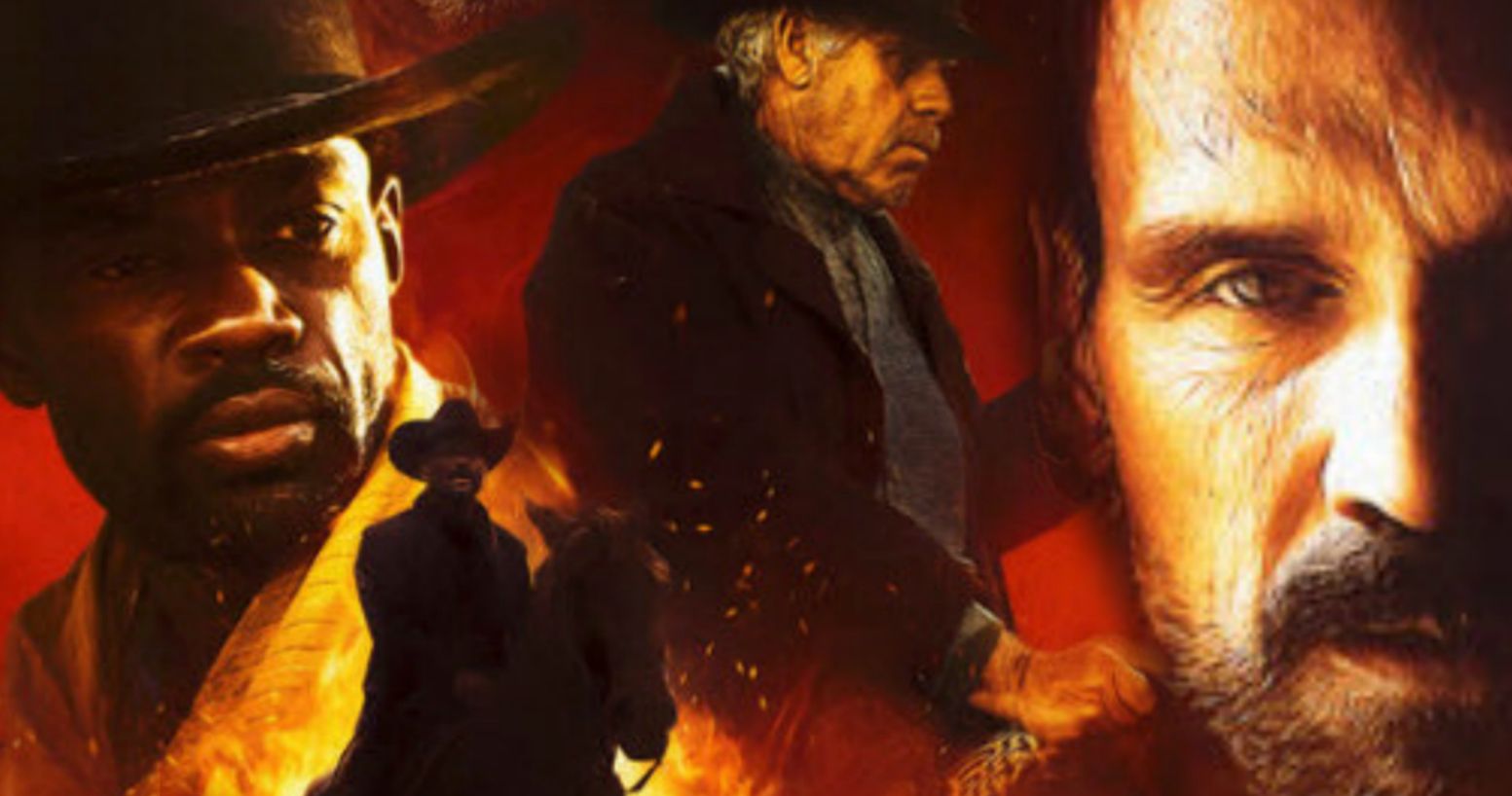Hell on the Border is a biographical western about the legendary Deputy U.S. Marshal, Bass Reeves. Born a slave in antebellum Arkansas, Reeves broke racial barriers by becoming the first black marshal west of the Mississippi River. He was an expert tracker, deadly with firearms, and a fierce proponent of the law. Director/writer Wes Miller accurately portrays Reeves' struggle earning his badge; but fails mightily to produce a cohesive film. Hell on the Border wastes a veteran cast of Hollywood stalwarts, has shoddy editing, and a dismal production design. Bass Reeves has a story that needs to be told. Hell on the Border shines a spotlight on the lawman, but fails in almost every other regard.
David Gyasi (Carnival Row, Interstellar) stars as Bass Reeves. The film opens in 1875 with Reeves as a posseman in Indian Territory near Fort Smith, Arkansas. He does the legwork apprehending mouthy cattle rustler, Charlie Storm (Ron Perlman), but gets no credit for the bounty. Judge Isaac Parker (Manu Intiraymi) wonders why the marshal is pristine clean, but Reeves and his horse are covered in mud. The judge's sister (Ashley Atwood) extols Reeves' tremendous skills.
Meanwhile, the violent outlaw Frank Dozier (Frank Grillo) and his gang send Judge Parker a bloody message. Parker demands Dozier's capture, but the marshals at the fort decline the warrant. They are stunned when Bass Reeves volunteers. No Negro should ever wear a badge to hunt a white man. Reeves offers a deal, a promotion to marshal, if he can bring back or kill Frank Dozier. The other marshals lack the courage or fellowship to accompany Reeves. The jailed Charlie Storm offers his services for a full pardon. Bass Reeves and Charlie Storm embark into the lawless frontier to find Dozier's gang. Leaving Reeves' wife (Jaqueline Fleming) to care for their six children, and fend off a racist senator (Marshall R. Teague).
Hell on the Border has critical editing issues from the start. The film is choppy and uneven in its pacing. There's no cinematic flow to draw you into the story. Hell on the Border lurches clumsily from scene to scene. This is especially evident in the erratic action sequences. There's gunplay aplenty, but it looks awful. What should be visually exciting is cut together in a bewildering way. The filmmakers did a terrible job in post production.
The three lead actors are not given enough time to establish chemistry. David Gyasi, Ron Perlman, and Frank Grillo have fine individual performances, but are awkward in their ensemble interactions. Bass Reeves and Charlie Strong are supposed to grow together as partners. Their relationship doesn't take root. They come off as unbelievable; another casualty of the weak editing.
The settings never take hold; a result of bad production design. Fort Smith, the various towns, and Dozier's outlaw hideout are drab. Even their journey through the woods is completely unremarkable. Hell on the Border refers to the lawlessness between Arkansas and Indian Territory. That danger is not felt whatsoever. What should be wild and majestic looks like a bunch of trees on a park trail.
Hell on the Border has one successful aspect that deserves recognition. The film illuminates the lives and travails of black settlers after the Civil War. An opening card states plainly that the black cowboy has been erased from American history. Bass Reeves accomplishments as a lawman were historic. He should be as well known as Wyatt Earp and Wild Bill Hickock. Hell on the Border at least gives him his due respect. The film is a production of Sweet Unknown Studios and Future Proof Films. It will be available on demand and have limited theatrical distribution on December 13th from Lionsgate.

